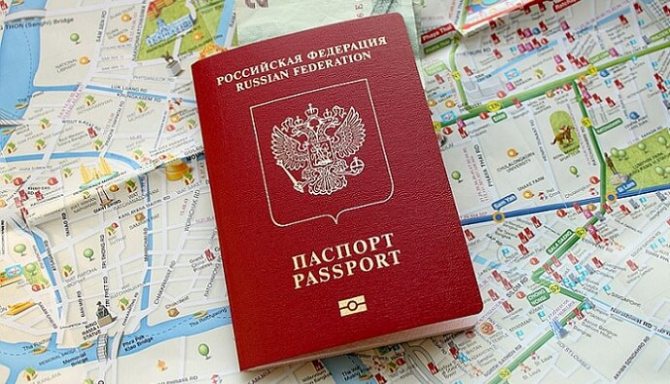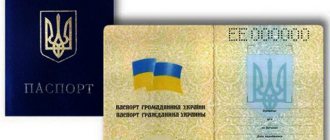At the moment in Russia, a huge number of people have various types of debt. Unfortunately, not all of them know that if the need arises to temporarily leave the territory of the Russian Federation, they may be denied this. Even fewer people know that you can become “banned from traveling” not only for having debts to the bank. At the moment, a simple failure to pay utility bills can lead to this result. To understand whether a foreign passport will be issued if you have debts, you must first of all refer to the current legislation.
The legislative framework
Important! Please keep in mind that:
- Each case is unique and individual.
- A thorough study of the issue does not always guarantee a positive outcome. It depends on many factors.
To get the most detailed advice on your issue, you just need to choose any of the options offered:
- Use the online chat in the lower corner of the screen.
- Call: Federal number: +7 (800) 511-86-74
At the moment, the procedures for leaving and entering the Russian Federation are regulated by Article 15, Federal Law No. 114. According to this Federal Law, a list of cases has been established in which an individual may be denied permission to travel outside the Russian Federation. One of the reasons for refusal may be the presence of an outstanding debt to someone.
It seems that everything is extremely clear and understandable - if there is a debt, a temporary restriction on leaving is imposed, and when it is repaid, such a restriction is lifted. The only caveat is that these rules relate directly to the procedure for leaving the country, and not to obtaining a foreign passport.
In fact, getting a passport with debts should be quite possible. There is no legal ban on receiving this document, since the only thing the state has the right to prohibit you from is leaving the territory of the Russian Federation with this passport, but not depriving you of the right to receive it.
In fact, the practice of unlawfully refusing to issue this document is still ongoing. The main motivation of employees is the “internal order” that supposedly established this ban. Fortunately, we are not employees of the Federal Migration Service or the Federal Bailiff Service, therefore, the internal rules of these organizations do not apply to us. As a result, we have every right to exercise the civil rights we received on the basis of the constitution in full (i.e., until the ban on obtaining a foreign passport is formalized into law, they do not have the right to prohibit its issuance to us).
Note! A lawful refusal to travel outside the Russian Federation will be considered only that refusal that was made on the basis of a previously made court decision (i.e., they can refuse to leave only if the creditor previously filed a lawsuit against you, and he, in his turn, recognized the creditor’s demands to impose a ban on your travel abroad as legitimate).
How to get a passport with debts from bailiffs
Departure from the country is possible under the following conditions:
- A person with a debt of less than ten thousand, then without the slightest problem you can use your passport at the airport. Or when the former loan is fully repaid.
- The court has no right to refuse to issue the required document in a situation where you work outside the country and repay your loan there. But if the plaintiff is against such debt payment, you will have to go looking for work in the Russian Federation.
- With the permission of the court, you can use foreign passport visas at customs.
- It is possible to take advantage of the period (2-3 weeks) that exists in the intervals between bans on leaving the country, if they are set for six months. At this time, you are removed from the debtor database.

The presence of outstanding debts often makes it impossible to obtain a passport
If a person repays the loan and does not have any debts on it, the name will not be entered into the FSSP database, which makes it possible to freely travel outside the country, without any prohibitions.
For what reasons are restrictions imposed on obtaining a foreign passport:
- When you received a subpoena from a creditor because of an unpaid loan in excess of 10 thousand.
- The plaintiff has a writ of execution.
- A bailiff makes a decision to prohibit a citizen with a loan from leaving the country until he pays off the debt.
- The court sent an application to the migration (if necessary, border) service with a request to deny the opportunity to leave the country under these circumstances.
- The creditor's request in writing to the court.
Why is such a ban needed?
No government agencies will issue a passport document to a person assigned to the FSSP database, otherwise they will have to sue the migration service. The bailiff applies such sanctions to collect debt from the debtor, in the worst situation, property, if it concerns non-payment of rent. It turns out that the debtor does not even need to decide to take such risks. Subsequently, you can lose not only your air ticket, but also be refused to renew your passport.

The ban on leaving the country is imposed for the purpose of debt collection
To avoid such cases of debt, before taking on a loan, you need to consider how much, to whom and in what time frame you will have to make payments. If somehow due to unforeseen circumstances a debt has arisen, you must seek help from legal authorities to solve this problem. Including remembering to pay on time for services such as alimony, rent, taxes and utility payments.
Who is eligible to receive a passport if there is debt?
Having understood the current legislation, it is worth turning to the list of those persons who, if they have a debt, the state still allows to leave the Russian Federation.
These people include:
- Individuals whose debt amount does not exceed 30,000 rubles. (in some cases – 10,000 rubles).
- Individuals officially engaged in labor activities outside the Russian Federation, the income from which is partially used to repay debts incurred in the territory of the state*.
- If an agreement is reached between the creditor and the debtor**.
*If an individual is engaged in work activities in the territory of a foreign state, before leaving for work, such a person must obtain permission from the creditor.
**Agreements include, for example, a debt restructuring agreement, or a change in any other significant conditions under which the debtor ceases to be considered a willful defaulter.
There are no other cases when, if you have a debt, you will be approved to travel abroad, as well as unhindered receipt of a foreign passport.
How to solve a problem
Let's assume that a citizen has a debt. In this case, how to get a passport with debts?
There are several options:
- The easiest way is to pay off your debts.
- The most difficult one from the point of view of bureaucratic execution is coordinating a trip abroad (and obtaining a passport) with the creditor.
- An equally difficult method is debt restructuring through the courts.
So, it is possible to make a foreign passport with debts from bailiffs, however, this requires some effort. First of all, this must be a willingness to somehow repay the debt to the creditor, communicate with him, showing respect for his interests and asking his permission to move across the border. It must be understood that the restriction on free movement across the border is introduced precisely in order to encourage debtors to gradually pay off their debt.
In what cases are travel restrictions applied?
In order to understand in more detail the question: when, for whom and in what cases restrictions can be imposed on citizens, let us consider this Federal Law No. 114 in more detail.
It is prohibited to leave the territory of the Russian Federation in the following cases:
- If an individual has previously been granted access to classified information constituting a state secret, for a certain period of time such a person may be subject to restrictions on the ability to leave the territory of the Russian Federation.
- If an individual is undergoing compulsory military service upon conscription, or is undergoing compulsory service in the form of the ACS (Alternative Civil Service).
- If a candidate for traveling abroad is involved in any criminal case as a suspect or accused person.
- If a person has an outstanding criminal record at the moment (including serving a suspended sentence).
- If an individual ignores obligations previously imposed on him by the court.
- If, when preparing documents, the candidate for a foreign passport provided deliberately false information about himself.
- If an individual is enrolled in public service in the Federal Security Service.
- If an individual cannot independently answer for his debt obligations, as a result of which the court initiated bankruptcy proceedings against him.
This is the complete list of restrictions. If you have at least one of them, the border service has every right to refuse you to cross the state border of the Russian Federation until the reason preventing you from leaving is completely eliminated.
Will a foreign passport be issued in 2021 if there are debts or enforcement proceedings have been opened?
There are often situations when a Russian citizen, going on a trip abroad, successfully and without unnecessary difficulties draws up documents, but at the very last moment, an unpleasant surprise awaits him. When going through passport control, border guards explain that he is prohibited from leaving the country.
Most often, the reason for this is the citizen’s outstanding debts - fines, loans, alimony and other debt obligations. Therefore, it is important to know at what amount of debt there is a risk of being unable to travel abroad, as well as what to do to avoid getting into such a situation, and in general, whether they will give you a foreign passport if you have debts.
What are the rules
At the initiative of the bailiff, a citizen may be temporarily deprived of the right to travel to another state in case of failure to fulfill the obligation to repay debts.
A similar rule is established by Federal Law No. 114-FZ “On the procedure for leaving the Russian Federation and entering the Russian Federation.” This means that refusal to issue a passport due to debt is legal.
It is known that after a citizen applies to the Main Directorate for Migration Affairs of the Ministry of Internal Affairs to obtain a foreign passport, documents and information about him are subject to a thorough check carried out by departments such as:
If during the inspection it becomes known that in relation to the citizen applying for an international passport there is an ongoing enforcement proceeding for debt collection, the authorized body will refuse to issue him an international passport.
Such a refusal will be valid until the debt is fully repaid. It is issued in the form of a motivated notification and sent to the citizen. The document indicates the validity period of the refusal and the possibility of appealing it.
The right to obtain a foreign passport is returned to the citizen only after full payment of debt obligations. The legislator has provided for certain exceptions in which a citizen can still obtain a travel document. Such exceptions are cases when:
- the amount of debt of a citizen applying for a foreign passport is less than 10 thousand rubles;
- a citizen works abroad and pays off debt through wages;
- the citizen is given the obligation to repay the debt under a bank loan agreement and the person fulfills this obligation in a timely manner.
In the above situations, the bailiff gives written permission to leave without unnecessary difficulties.
What is needed to obtain a passport
Everyone knows that in Russia, old and new-style international passports are used equally.
The procedures for obtaining both types of passports are almost the same, with the exception of a slight difference in the list of documents.
An application for issuance of a foreign passport of a new sample is drawn up in one copy, and for the old one - in two copies. A citizen independently decides which foreign passport to receive. The application can be submitted:
- to the local Department of Internal Affairs of the Ministry of Internal Affairs;
- through the Unified Portal of State Services;
- in MFC (Multifunctional).
The legislator gives all interested citizens the right to obtain a foreign passport urgently.
To do this, it is necessary to submit to the authorized body information confirming: the need for emergency treatment of the citizen himself abroad; serious illness of a close relative of a citizen living abroad; the need to remove the body of a deceased relative for burial in another state.
We also read: Cost of state duty for a foreign passport for 5 years in 2020 Replacement of a foreign passport through State Services
Checking debts through the FSSP
Before proceeding with the collection of the above documents for obtaining a foreign passport and all other procedures associated with obtaining a foreign passport, the interested citizen should find out if there are any outstanding debts that he may not know about or have forgotten.
This can be done by submitting a corresponding application to the local authority of the Bailiff Service or on the official website of the FSSP. Here, a citizen applying for a foreign passport can find out whether there is enforcement proceedings initiated against him, without leaving his computer.
The introduction of new technologies into the work of government agencies has made it much easier for ordinary citizens to interact with them. There is a special tab on the FSSP website - “Bank of Executive Documents”. To find the information of interest, a citizen applying for a foreign passport just needs to fill out the electronic form in this tab.
If there are debt obligations, the system will show data on the initiated enforcement proceedings and other information related to them. The question regarding whether a foreign passport will be issued if there is enforcement proceedings can be answered in the negative, but only until the debtor fulfills the obligation.
Debt repayment procedure
It is impossible to obtain a foreign passport with debts, so it is worth paying off the debt as quickly as possible. To do this, the citizen must transfer funds to the bank account of the Bailiff Service. Subsequently, this money will be sent in full to the creditor or distributed in equal parts if there are several creditors.
The mark on the existing debt will be removed from the database or changed within 3-6 days after the funds are received on the FSSP deposit.
Then the bailiff is obliged to decide to terminate enforcement proceedings against the citizen applying for a foreign passport and notify the border control authorities (if the citizen already has a foreign passport) or the Main Department of Migration Affairs of the Ministry of Internal Affairs (if the passport is at the registration stage).
Other reasons for refusal
In addition to the presence of debts, the law determines in which cases the issuance of a foreign passport is refused. These include:
- work related to state-protected information (in any field of activity);
- service in the FSB;
- involving a person as an accused or suspect as part of a criminal investigation;
- the presence of a citizen in places of deprivation of liberty;
- providing false information when preparing documents;
- undergoing urgent military or alternative civil service.
In addition, it is important to know that the law does not give the right to obtain a passport with an outstanding criminal record.
Read also: Account statement for visa
Source: https://lenovoz.ru/zagranpasport/vydadut-esli-est-dolgi
How to find out if you will be allowed to go abroad because of debts?
At the moment, the FSSP has the right to impose a sanction in the form of refusal to travel abroad only if the amount of debt exceeds 30,000 rubles. This amount threshold is set for the vast majority of debt obligations. The simplest examples would be:
- debt on utility bills;
- debt on fines;
- debt on loans and credits.

It is also impossible not to say that in some cases, the amount of debt at which a person becomes “restricted to travel” is 10,000 rubles. Such cases include debts related to:
- alimony arrears;
- debt related to non-payment of compensation for personal injury;
- debt associated with non-payment of compensation for causing material damage.
If you have a debt, but you know that the amount does not exceed the permissible threshold, you can be sure that no restrictions on leaving will be imposed.
If you are sure that the amount of debt exceeds the permissible value, you can be sure that you will not be able to leave the Russian Federation, since you are absolutely transferred to the “restricted to travel” category and the only way to resolve this situation is to conscientiously repay your debt obligations.
Important! If you are sure that you have a debt, or that its amount is quite significant, we recommend that you pay the debt in advance of your trip, since a restriction can be imposed at any time.
Check through the FSSP
The most reliable way to make sure whether you have a debt or not, as well as whether any restrictions are imposed on you, is the website of the Federal Bailiff Service (FSSP).
Using this site, by entering your full name, date of birth, and region of residence, you can easily find out whether or not you have debt and any restrictions associated with it if you have it.
The information on this site is quite up-to-date, since it is updated every 3-4 days, which makes it easy to track the amount of debt, as well as the status of the presence or absence of a ban on leaving the country.
Check through the FSSP
In order to avoid getting into a situation where:
- the fee for issuing a foreign passport has been paid;
- time wasted in queues to submit documents.
And as a result, the citizen receives a refusal to issue a passport due to overdue debts; you should inquire about their availability in advance.
Debts are very unpleasant:
- which you simply forgot about;
- which you repaid a long time ago, but for some reason information about this fact was not received by the FSSP authorities;
- debts that were “hanged” on a citizen unlawfully.
You can obtain information regarding your own “debt status” in the appropriate section directly on the website fssp.ru. In addition, you can go to the branch of the Federal Bailiff Service at your place of residence and make an official request. The responsible employee will provide not only information (whether there is/is not a debt), but will also issue a writ of execution if such a debt exists. A citizen can initiate proceedings if, in his opinion, the debt is unfounded.
Debt repayment procedure
Before we consider the procedure for repaying debt, we need to determine the situation in which we find ourselves.
- There is a debt, but its amount is too small to impose a ban on traveling abroad, or the debt repayment period has not yet expired.
- The debt exceeds the amount of the debt, as a result of which a ban on traveling outside the Russian Federation was imposed.
In the first case, it will be enough to go through the standard debt repayment procedure, without notifying the FSSP body about it. This is due to the fact that there is no need to cancel any restriction, so updating information about you in the database is not critical.
In the second case, having repaid the debt, you need to make a copy of the receipt, and then contact the FSSP bailiff in charge of your case. He needs to inform about the payment of the debt, and also write a written request to the FSSP about its full repayment and the need to remove the debt. In this case, you will be able to reduce the period as much as possible from a month to fourteen days (two weeks). It is unlikely that it will be possible to organize the removal of the “restricted to travel” status in less than 2 weeks.








